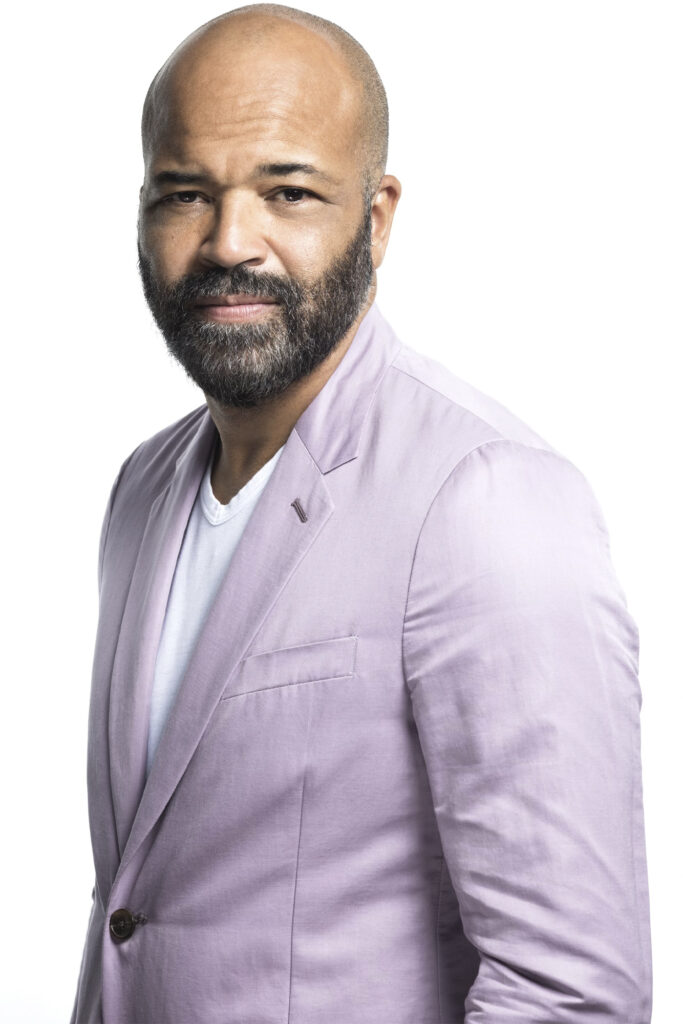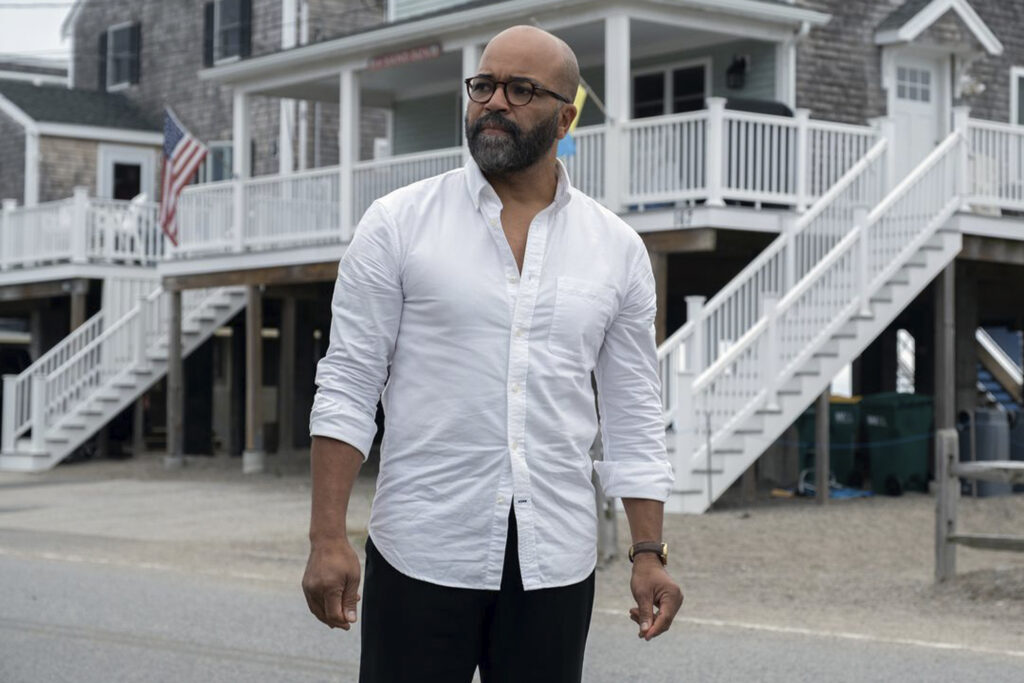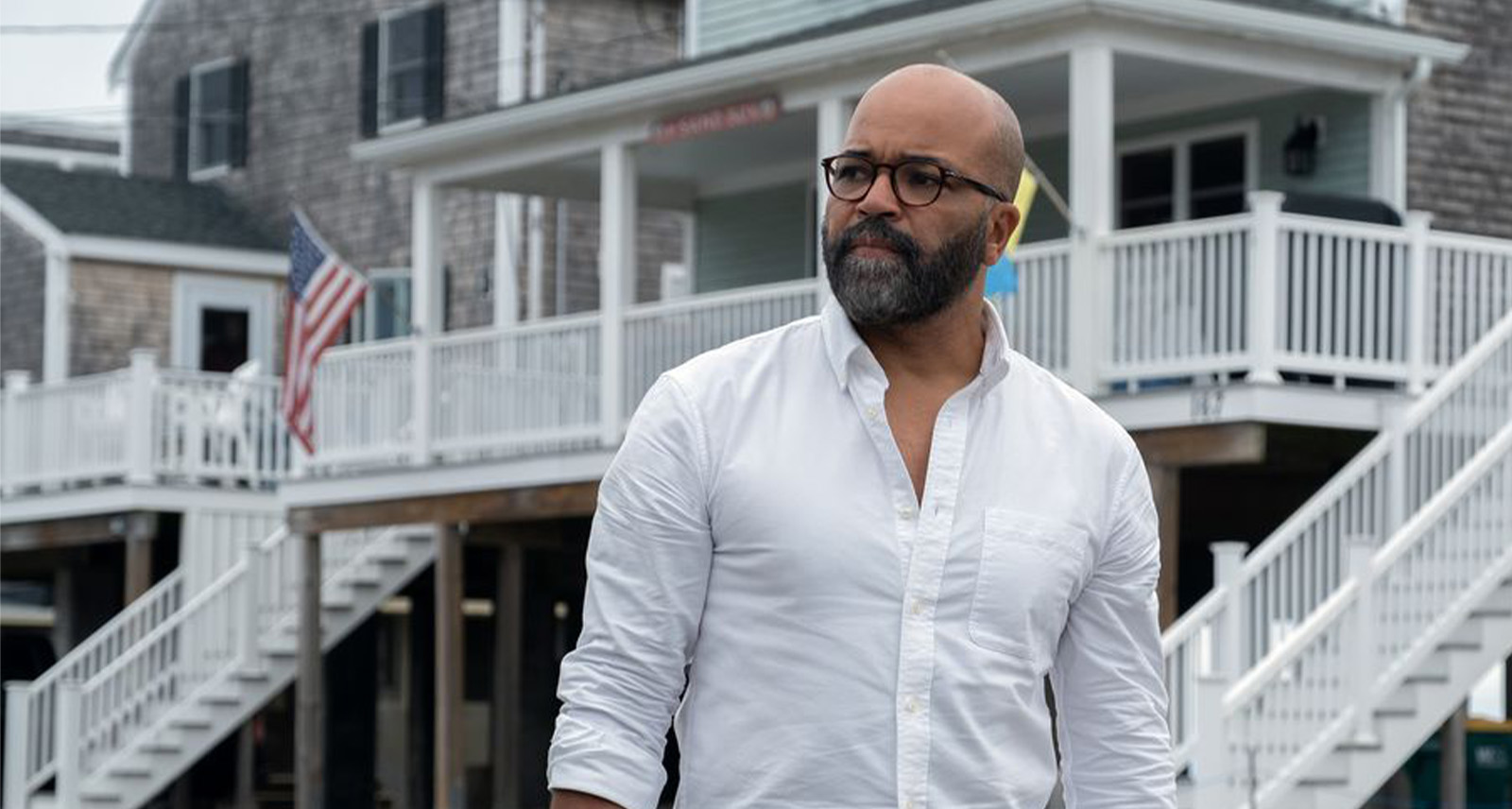Jeffrey Wright Says “American Fiction” Is a Story He’s Been Trying To Tell
Jeffrey Wright is known for his excellent versatility and range. His malleability allows him to easily slip in and out of roles that couldn’t be more different — whether he’s playing Martin Luther King in Boycott or Detective Gordon in Batman.
He’s played a variety of roles that many will recognize him from: HBO miniseries Angels in America, Boardwalk Empire, and Westworld. His illustrious career has earned him several awards and accolades, including Emmy, Tony and Golden Globe awards.
This year alone, Wright starred in three films, playing Civil Rights activist Adam Clayton Powell Jr. in George C. Wolfe’s Rustin, a military general in Wes Anderson’s Asteroid City, and a frustrated and disillusioned author in Cord Jefferson’s American Fiction. The last is one of his best performances this year, and in my opinion, his career.
“Cord Jefferson, who adapted our script from the novel, Erasure, drew a wonderfully descriptive and tonal character that really jumped off the page at me. So, I got it pretty early on, and just went about trying to breathe life into the man.”
Jeffrey Wright
American Fiction, which won the People’s Choice Award at TIFF and is now playing theatres, has already picked up five Critics Choice Awards, including Best Picture, Best Adapted Screenplay and Wright for Best Actor. Last month, he even earned the Visionary Award at the Critics Choice Celebrations gala.
The comedy follows “Monk” Ellison, an author frustrated that his books are being typecast as African American fiction. On a drunken night, he sarcastically writes a book (under a pen name) that plays up every racial stereotype imaginable to play into the biases of the publishing industry. Ironically, his book becomes a favourite amongst white publishing executives.

For Wright, his goals as an actor are pretty simple: he opts for work that’s relevant and interesting. “When I started out doing this, I just wanted to be a good actor — to do interesting, relevant work and do it well. If, at the end of the day, I can look back and say that I did that, then maybe that will speak for itself.”
While Wright is known for his outstanding dramatic work, it’s the comedic timing in American Fiction that will surprise many. There’s a phone call scene that will live rent-free in my mind.
“I was very much in my own way, living a kind of Monk-like existence at that time.”
Jeffrey Wright
While the actor was in Toronto to promote his film, I spoke with Wright about the role that seems to overlap most with his own life. We talked about how he’s chosen work throughout his career and the evolution of his craft.
What was the biggest difference between your first impression of Monk, when you signed on for the role, and when you started production, filling in his world with the lines you were given?
I don’t think there was a lot of space between my first reading of the script and what we ultimately did, simply because Cord Jefferson, who adapted our script from the novel, Erasure, drew a wonderfully descriptive and tonal character that really jumped off the page at me. So, I got it pretty early on, and just went about trying to breathe life into the man. [I was] supported, of course, by an incredible circle of actors that just created such wonderful dynamics and depths to the scenes that we did together.
You’ve said there’s never been such an overlap between your own life and this character. How so?
Well, for me, the heart and soul of this film is Monk’s family and his relationship to that family. It’s a family in crisis, experiencing a series of crises, that demands he be the adult in the room and become the caretaking glue that holds everyone together.
I had lived [through] similar experiences just prior to receiving the script, in terms of trying to manage issues that my family was facing. My mom passed about a little over a year before Cord reached out to me about the project. So, I was very much in my own way, living a kind of Monk-like existence at that time. And to some extent, I still am. Although I’m emerging from it, I think, but for that reason, I was drawn on an emotional level to that aspect of his story. I knew it in some ways, unfortunately, very intimately.
“We’re really driven by these characters, the challenges they face and their humanness. In that way, there’s a universal availability or an accessibility to the story that I think is quite wonderful. Yes, it’s told from the perspective of a Black writer, but his experiences and his family, I think, are relatable to people across backgrounds.”
Jeffrey Wright
I heard you say that you’ve never been asked to do a complex, nuanced portrait of a family, which is so crazy.
Yeah, I had that realization, as we were working on those scenes. It just dawned on me: it was the first time in my career that I was playing that type of music and I didn’t fret about it so much. I was surprised when the realization hit me, but I enjoyed the process of working with everyone on those scenes tremendously. It only made me appreciate what we were doing all the more.

What I love about your work as an actor in your impressive three decades-long career is the kinds of roles you’ve taken and excelled in. How does a role like this, a film like this, satisfy you in your creative and artistic pursuits as an actor?
There’s so much rich, interesting, relevant stuff baked into this character and into this film. This is the type of story I have tried to tell throughout my career. Obviously, I’m not always successful in that, but this is what I got into the business for: to be part of films that harken back to an earlier period in American cinema where films were story-driven and about human interaction. Films that were topical and, in some ways, digging into the mess around us in society and trying to shine some light on that.
“We’re splintered and, as a result, more divided than any other time in our recent history. So, it’s an interesting time to work.”
Jeffrey Wright
We’re a small film; not a lot of bells and whistles with our film, we’re really driven by these characters, the challenges they face and their humanness. In that way, there’s a universal availability or an accessibility to the story that I think is quite wonderful. Yes, it’s told from the perspective of a Black writer, but his experiences and his family, I think, are relatable to people across backgrounds. It’s just rich and wonderful stuff.
And also, in terms of the nature of this, there are certain qualities within his story that parallel the beginning of my film career. I see overlaps between Monk’s journey and Jean-Michel Basquiat’s story. I think there’s some resonance there that, in some ways, make those two films bookends to my career.
Monk is very much reflecting on his career, his life, and there’s these themes of self-discovery. What have you discovered about yourself at this stage of your life and career as an actor?
At the end of this film, Monk is a different man than he was at the beginning. He’s evolving or at least changing, perhaps growing. I hope that I can say the same about myself. If there’s another parallel that I draw between his story and mine, [it’s that] I hope I continue as an individual and as an actor to learn, grow, expand and evolve.
“I think that it will be surprising to audiences, the ways in which they find kinship with these characters, even though they may seem like they’re from different backgrounds.”
Jeffrey Wright
The movie is a satire, but it tells the unfortunate truth about how certain stories about people of colour are made today. Having been in the industry for decades, how do you feel about how things have changed from the beginning of your career, in terms of the stories told?
Well, I think that there are more opportunities for stories to be told for shows and films to be made now given the technology. There’s just more space for many different types of voices now. That said, there’s also a kind of over-saturation of the landscape: although there’s more available, in some ways, less is seen.
I also think that we don’t, as a collective, tend to watch things together anymore. So, there’s kind of a weakening of the impact of certain stories. There were times — for example, when let’s say Roots was shown on American television — everyone watched it, and it became a cultural touchstone that we could all circle around and have a conversation about. We don’t enjoy those dynamics anymore. We’re splintered and, as a result, more divided than any other time in our recent history. So, it’s an interesting time to work.
What I appreciate about this film is that there’s room for everyone inside of it. I think that it will be surprising to audiences, the ways in which they find kinship with these characters, even though they may seem like they’re from different backgrounds. It has an opportunity, I hope, if only within the two hours that it’s showing, to maybe bring folks together. That’s much needed now, and healthy, and ideally productive.
Your career spans decades and you’re being recognized with Career Achievement Awards. You have such an imprint on cinema and TV. What is the legacy you want with your body of work?
Oh, that’s a tough one. I’m not sure. I think in those terms, I tend to just go to work from project to project and take each as it comes. When I started out doing this, I just wanted to be a good actor and to do interesting, relevant work and do it well. So if at the end of the day, I can look back and say that I did that, then maybe that will speak for itself.
I love that. So have the goals that you’ve set for yourself changed at all in the decades?
Oh, yes, absolutely. Everything changes when you have kids (laughs). Early on at least, I attempted to be, I suppose, pure in my creative choices. I didn’t always succeed at that. Once the kids enter the space, your considerations become more pragmatic. My kids — they’re strange. They tend to want to eat every day multiple times a day, odd things like that. So, that insists on a different set of criteria within the choices that you make.
At the same time, I’ve been really fortunate to find work that excited me, stories that I thought were worth telling, and collaborators who were really wonderful. I’ve certainly found that in this film, so maybe sometimes it’s one for the kids and one for me, as projects go.
“I liked the idea that we have a laugh at the absurdity around us but, at the same time, we’re looking inward and having a bit of a laugh at ourselves too.”
Jeffrey Wright
You’re known for your versatility and range with every project that you take. Is there anything that you haven’t done in terms of the shape-shifting roles that you would like to do?
Oh, yeah, I’ve got a few things up my sleeve. We’ll see when I’m able to slide those out.
Looking forward to that! You’re known to be an excellent dramatic actor, which we all knew, but I just have to say: I loved seeing your comedic side too. So hopefully more of that, because I hear that’s very similar to your own sense of humour, as I believe your daughter said as well.
Yes, my daughter did say that. I quite enjoyed the tone of this film, and I liked the idea that we have a laugh at the absurdity around us but, at the same time, we’re looking inward and having a bit of a laugh at ourselves too. We’re kind of, in this film, equal opportunity misanthropes [even] as we look inwards.
American Fiction is now playing in theatres.










